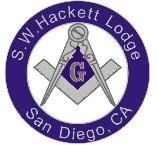


|
|
Henry
C. Clausen and the
Henry C. Clausen, later to become the Sovereign Grand Commander of the Supreme Council, Scottish Rite, Southern Jurisdiction of the U.S., was assigned in 1944 by the U.S. Secretary of War, Henry L. Stimson, to conduct one of the many investigations of the Pearl Harbor attack in 1941. (Lodge of the Double Headed Eagle, by William L. Fox, pages 321-322). He conducted his extensive investigation during 1944 and 1945, while he was in the Judge Advocate General's Corps of the U.S. Army, a Major and then Lieutenant Colonel. Fox said that Clausen "concluded it was absurd to assume any complicity on the part of President Roosevelt or General George C. Marshall" for the Pearl Harbor attack, but instead Clausen blamed communications problems and an unworkable system of military intelligence. (Conspiracy theorists might say that Clausen, the Freemason, found that Roosevelt and Marshall, also Freemasons, were not to blame.) In the book At Dawn We Slept: The Untold Story of Pearl Harbor, by Gordon W. Prange, which is the most extensive book about the attack, the author refers to Clausen's appointment to investigate the Pearl Harbor attack saying that Stimson "had an excellent eye for a good man and could recognize efficiency when he saw it." He also says: "Clausen's judicious gaze reflected the astute lawyer which he was. Something in his eyes also revealed a touch of the mystic, a quality which led him to become a deeply committed Freemason of the thirty-third Degree." (page 668) In Clausen's own book about his Pearl Harbor investigation, Pearl Harbor: Final Judgment, with Bruce Lee, published in 1992, shortly before his death, Clausen mentioned Freemasonry several times. At pages 56-57 he wrote: "So I called upon Harry Truman and met him for the first time. He was cooperative, but stiffer and more formal than I had expected. . . . he didn't respond with any enthusiasm. Then I told him: "When you were the Grand Master of the Masons in Missouri, I was Grand Orator of the Masonic Grand Lodge of California." Hearing this, Truman literally jumped up from his chair, came around the desk and began shaking my hand vigorously. "You'll have my complete cooperation, Henry," he promised, and he immediately began to put his words into action." At page 149 he wrote: ". . . MacArthur asked me some personal questions. I told him that when the war began, I had been the Grand Orator of the Masonic Grand Lodge of California, and I congratulated him, as I later did President Truman, on being made a thirty-third-degree Scottish Rite Mason. "He kept me in his office for nearly another hour, talking about how to expand in the Far East the moral principles of Freemasonry. Every dictator in history has tried to put the Masons out of business because they believe in freedom. MacArthur was positive that Hitler had poisoned the minds of the Japanese against the Masonic Order for this very reason, and that was why even the Constitution of Japan forbade anyone from joining the order. MacArthur promised me that if and when he got to Japan, he was going to make sure that provision was eliminated from any future Constitution. He did, too. "'Since we're talking in this fashion,' I said, 'may I tell you about the plight of some Masonic people in Manila? . . . Would there be any objection, General, to my using the military mail to send over some implements that are used to start up the Masonic Lodge, items such as rods, Bibles and so forth?' 'Absolutely not,' MacArthur said. 'I'm a Mason. My G-2, Willoughby, is a Mason. We'll make the arrangements for you.' "Well, Willoughby went overboard. He told me to send anything I wanted. . . . MacArthur was also instrumental in getting confiscated property in Manila and Japan returned to the Masons, and the Order has had the basis to flourish in both places and inculcate the spiritual values MacArthur recommended." Perhaps because of these comments, in Scapegoats: A Defense of Kimmel and Short at Pearl Harbor, by Edward L. Beach, the author, a retired U.S. Navy Captain, said that Clausen's book particularly faulted Admiral Kimmel and General Short for what happened at Pearl Harbor and other U.S. areas in December 1941, and laid qualified blame on President Roosevelt. (page 149) "Significantly, he places no fault on either General Marshall or General MacArthur but took pleasure insofar as General MacArthur was concerned in the fortuitous fact that he and MacArthur were both thirty-second degree Masons. As he explains it, this fact itself exonerates MacArthur of any fault."
|